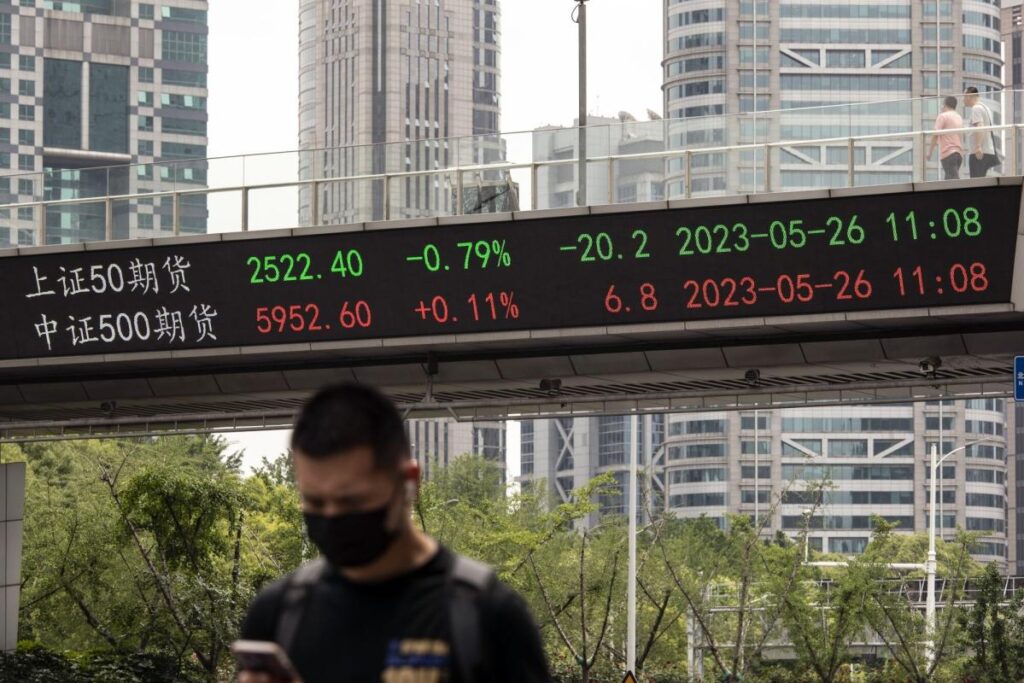(Bloomberg) — A key gauge of Chinese stocks was on track to enter a bear market as a sluggish economic recovery, weakening yuan and tensions with the US left traders with little reason to buy.
Most Read from Bloomberg
The Hang Seng China Enterprises Index dropped as much as 1% on Tuesday, marking the fifth day of declines and taking its losses from a Jan. 27 peak to about 20%. The HSCEI gauge and Hong Kong’s benchmark Hang Seng Index are among the month’s worst performing major equity gauges.
The grim bear-market milestone deals a blow to investors who’d been betting on a revival after the reopening rally flopped at the end of January. Some China bulls are retreating in frustration, trimming portfolio allocations as they come to terms with a lackluster economic recovery and modest earnings.
READ: Niche Commodities Sound Alarm in Every Corner of China’s Economy
“There is just no positive news out there and it’s really tough for investors,” said Willer Chen, a senior analyst at Forsyth Barr Asia Ltd. “The weak macro data for April serves as a wake up call for a lot of investors, while Sino-US relationship is not helping as no major ice breaker has been witnessed.”
In a sharp reversal of fortunes from earlier this year — when buy calls were dominant — investors see a lack of catalyst for gains as the post-Covid recovery sputters and regulatory uncertainties still abound. Tussles with the US on a wide range of issues continue to make investors wary, with Beijing’s rejection of a US request on a defense chiefs meeting adding to the jitters.
READ: China Spurns US Defense Chiefs Meeting Amid Sanctions Snag
Pessimism is everywhere. Foreign funds are on track to trim their holdings of mainland shares for a second straight month, something that hasn’t happened since the rout in October. Domestic fund sales have fallen to near levels seen after the 2015 market collapse as investors remain risk averse, Shanghai Securities News reported Tuesday.
Both the HSCEI gauge and the Hang Seng Index are down more than 7% so far this month, and have erased about half the gains seen during the November-January reopening euphoria. While some sectors related to artificial intelligence and state-owned enterprises have seen bouts of rallies, they haven’t been enough to lift the broader market.
The onshore CSI 300 Index was down as much as 1.2% Tuesday, extending losses after wiping out all its gains for 2023.
All focus is now on the May reading of China’s manufacturing and services due Wednesday, after shocking misses last month accelerated the market’s downturn. Economists expect manufacturing to remain in contraction, while the expansion in services likely slowed.
But as key stock gauges reach oversold levels, with their relative strength indexes hovering around 30, some are sensing a bottom.
“While we’re seeing impatient investors throw in the towel at this point, I think the selling is overdone,” said David Chao, global market strategist for Asia Pacific at Invesco Asset Management in Singapore. “China’s economy is not barreling towards a recession, as recent market movements would suggest.”
Most Read from Bloomberg Businessweek
©2023 Bloomberg L.P.


